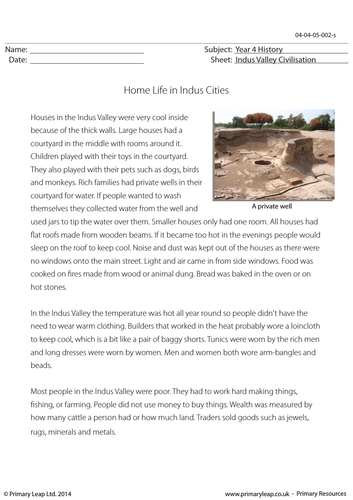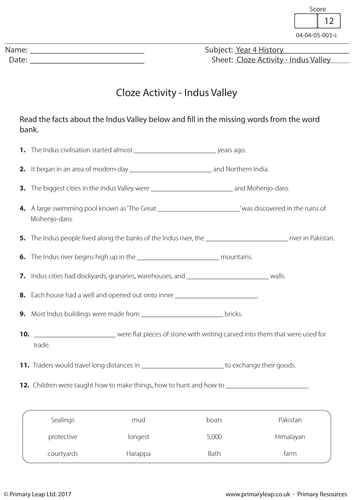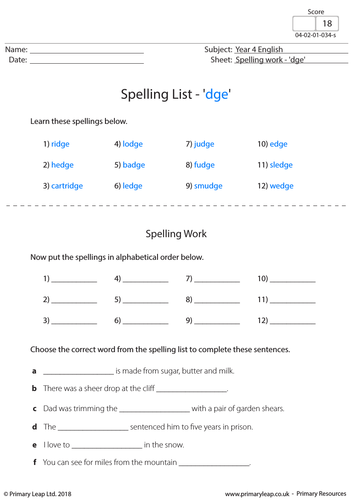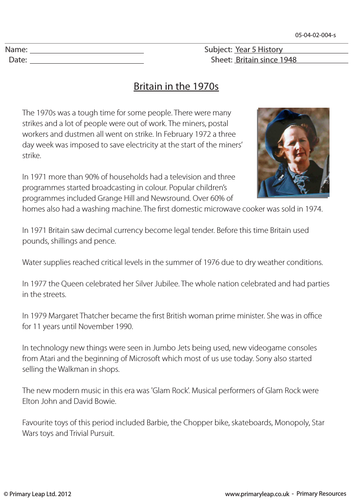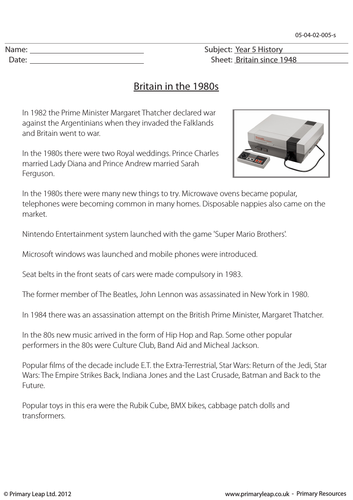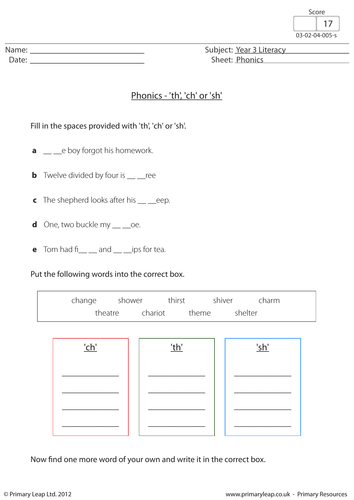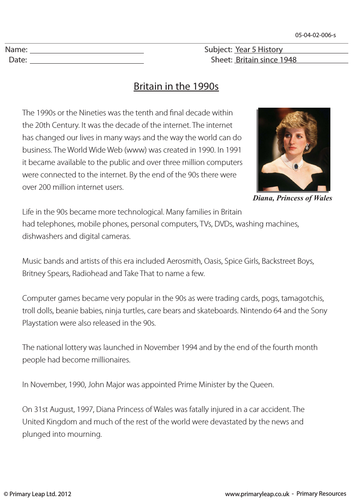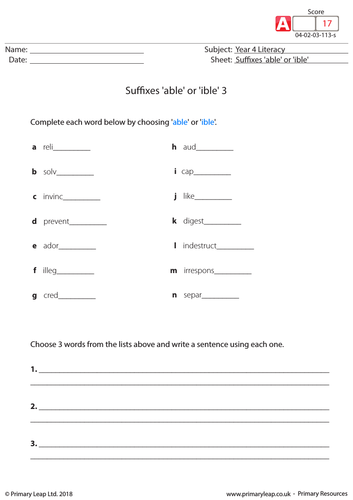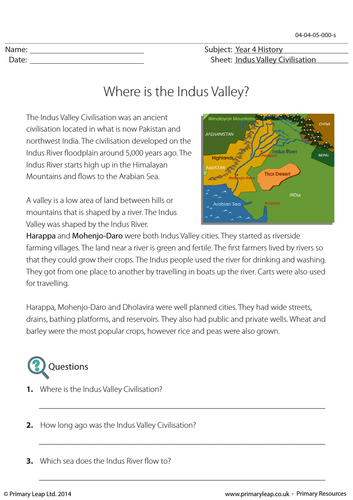512Uploads
453k+Views
210k+Downloads
Literacy for early childhood

KS2 English Resource: Spelling - silent letters
This KS2 literacy resource focuses on words with silent letters.
This worksheet was created by Primary Leap

History Resource: Reading comprehension - Home Life in Indus Cities
What were houses like in the Indus Valley? What food did the Indus people eat? What did they wear? Students are asked to read through the text and then answer the questions.
This worksheet was created by Primary Leap

History Resource: Cloze Activity - Indus Valley
Students read the facts about the Indus Valley and fill in the missing words from the word bank.
This worksheet was created by Primary Leap

KS2 Spellings - 'dge'
A KS2 English resource including a list of 12 words with ‘dge’ for students to learn. There are exercises including putting the words in alphabetical order and choosing the correct word from the spelling list to complete the sentences.
This resource was created by Primary Leap

KS2 History Resource - Britain in the 1970s
This worksheet was created by primaryleap.co.uk
KS2 History Resource - Britain since 1948. This worksheet includes some interesting facts and events in the 1970s. Students read the text and answer the study questions.

KS2 History Resource - Britain in the 1980s
KS2 History Resource - Britain since 1948. This worksheet includes some interesting facts and events in the 1980s. Students read the text and answer the study questions.
This worksheet was created by Primary Leap

Phonics - ch, th and sh
Learning phonics - a KS2 English worksheet that focuses on 'th', 'ch' and 'sh'. Children must fill in the missing letters and sort the words correctly. This resource is great for reading and spelling.

KS2 English Resource - Adding 'ing'
This KS2 English worksheet focuses on adding ‘ing’ to words. Students read the words and write them correctly in the boxes provided.
This worksheet was created by Primary Leap

KS2 English Resource - Apostrophes
A primary English resource on writing sentences and adding the missing apostrophes.
This worksheet was created by Primary Leap

KS2 History Resource: Britain in the 1990s
KS2 History Resource - Britain since 1948. This worksheet includes some interesting facts and events in the 1990s. Students read the text and answer the study questions.
This worksheet was created by Primary Leap

KS2 English Resource - Suffixes 'able' or 'ible'
A KS2 literacy worksheet focusing on the suffixes ‘able’ and ‘ible’. Students complete each word by choosing ‘able’ or ‘ible’.
This worksheet was created by Primary Leap

Reading Comprehension - Where is the Indus Valley?
This reading comprehension includes interesting facts about the Indus Valley Civilisation. Students read through the text and then answer the questions.
This worksheet was created by Primary Leap

Literacy Resource - Verbs and Prepositions
Some verbs are usually followed by prepositions before the object of the verb. Students read the sentences and circle the correct word to complete each sentence.
This worksheet was created by Primary Leap

Type of sentences: statement, command, question and exclamation
This worksheet was created by Primary Leap
A statement gives us information
e.g. the sky is blue.
A command tells us to do something
e.g. go and brush your teeth.
A question asks us something
e.g. how old are you?
An exclamation shows us that someone feels strongly about something
e.g. ouch!
Students read the sentences and write statement, command, question or exclamation next to each one. They also need to add the correct punctuation at the end of each sentence (., ?, !)

Alliterations - Adjectives
This literacy resource asks students to think of adjectives to create alliterations. For example: blue balloons. Created by Primary Leap

KS2 Reading Comprehension - Charles Dickens
Charles Dickens was born on 7th February in 1812. Celebrate his birthday with this reading comprehension including some interesting facts and information about the famous writer. Students read through the text and answer the questions. This resource was created by Lauren Savage @ Primary Leap

Phonics - able and ible
This worksheet was created by Lauren Savage @ Primary Leap
Learning phonics - a year 3 literacy worksheet that focuses on ‘able’ and ‘ible’. Children must fill in the missing letters and sort the words correctly. This resource is great for reading and spelling.

Reading comprehension - Christmas in France
This worksheet was created by Lauren Savage @ Primary Leap
What happens in France at Christmas? Students are asked to read the text and answer the study questions.

Phonics - oy and oi
This worksheet was created by Lauren Savage @ Primary Leap
Learning phonics - a KS2 English worksheet that focuses on ‘oy’ and ‘oi’. Children must fill in the missing letters and sort the words correctly. This resource is great for reading and spelling.

Common Exception Words 4
Common exception words are ‘tricky words’ to read. Some exception words are used very frequently, which is why children should start reading and writing them at an early age. This English resource helps students practise reading and writing common exception words. They are asked to read the word and use it in a sentence.
Find more resources at Primary Leap


